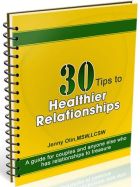What greater gift can you give your Valentine than a healthy relationship?
Do you look at your partner the same way you did on your first Valentine’s Day together?
Do you want to make it even better?
Or are you ready for a relationship pick-me-up?
If you answered yes to either of the last two questions, you will want to take advantage of the great offer below.
Has your fast-paced world, become so consumed with work, family, and other obligations, the two of you have lost focus on your commitment to, or desire for, each other? Has trust been broken? Has your communication broken down to arguing over disagreements or misunderstandings? You can turn this around!
You know the truth from experience: all couples have their relationship ups and downs. We love the ups; we hate the downs. Relationships change. That’s normal. It isn’t normal for relationships to have to change for the worse, or to stay that way.
Relationship problems are solvable. When the grass starts to look greener on the other side of the fence, we need to ask ourselves how well we have been fertilizing and watering our own. Sometimes we can’t figure out the solutions ourselves; we need to turn to an expert to get back on the right path.
Give your Valentine the gift of a better relationship. Tend to your chosen love by subscribing and listening to Fabulous February’s Free Relationship Enhancement Teleseminar Series.
Not familiar with a teleseminar? It is similar to a traditional seminar or class in content and purpose, Participants can listen from anywhere (even in your favorite recliner!), rather than meeting together in a particular location. You call in on the phone or sign on from your computer for each seminar in the series and just listen. It’s that easy.
Sign up by clicking on this link: Fabulous February’s Free Relationship Enhancement Teleseminar Series.
TOPICS SCHEDULED TO ENRICH YOUR RELATIONSHIP:
Friday, February 5th, 1 PM EST
Trust Issues on the Rise in Couples’ Relationships, Joe Bavonese, PhD. Relationship counseling and couples education expert, national presenter, and co-founder of The Relationship Institute, Royal Oak, MI.
Monday, February 8th, 8 PM, EST
What’s Sleep Got to do with Couples’ Relationships, Anyway? James Maas, PhD, Cornell University, Cornell, NY. Professor, researcher, author, and international presenter.
Wednesday, February 10th, 1 PM, EST
Couples Relationship Education: Who Needs it? Thad Zaremba, ACSW. Relationship counseling and couples education expert, The Relationship Institute, Royal Oak, MI.
Friday, February 19th, 12 Noon, EST
Money Matters to Couples, Brian Farr, MS. Financial therapist, author, local TV morning show guest, and national presenter, Portland, OR.
And more…
Your host, relationship specialist Jenny Olin, LCSW, will interview each expert for an hour.
These presenters were handpicked – only the best for you! Not only are they experts in their fields, but also engaging, conversational presenters.
Sign up by clicking on this link: Fabulous February’s Free Relationship Enhancement Teleseminar Series. Your information is kept confidential.
You can listen to the call live on your phone or on your computer. (Any long-distance phone charges are your responsibility.) After you have subscribed and before the first teleseminar, you will receive details about how to connect to the call. Also, before each call you will receive more details about the teleseminar expert and what you can expect.
After each teleseminar, all subscribers will receive a follow-up email with a link to an MP3 download. This way, if you are unable to listen live to a teleseminar, you can listen later at your convenience. You will get a bonus, too!
Sign up by clicking on this link: Fabulous February’s Free Relationship Enhancement Teleseminar Series. Remember, your information is kept confidential.
This teleseminar series is sponsored by Lighted Pathways, a relationship counseling and education practice. Located in Saratoga Springs, NY, it is owned by Jenny Olin, LCSW, and dedicated to Creating Healthy Relationships for Life. www.healthyrelationshipsforlife.com



 Posted by Jenny Olin, LCSW
Posted by Jenny Olin, LCSW 

